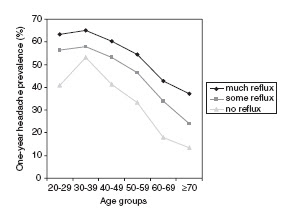BasiL
Latin name: Ocimum basilicum
Region name : Kemangi, Kemangen, Selasih, Surawung
Family name : Lamiaceae (mints)
THE PRINCIPLES OF HUMAN LIFE : Origin in human created from the ground. If die will be back in the tomb to the ground. Consumption of food derived from its soil. Treatment also comes from the land.
Cats Mustache Leaves
Cats Mustache Leaves
Latin name: Orthosiphon stamineus Benth
Region's named: Kumis Kucing, Songot Koceng, Remujung, Sesaseyan
Latin name: Orthosiphon stamineus Benth
Region's named: Kumis Kucing, Songot Koceng, Remujung, Sesaseyan
Maiden Hair or Ginkgo Biloba

Ginkgo Biloba or Maiden Hair
Labels:
alzheimer,
antidepressant,
antioxidant,
blood,
blood flow,
brain,
circulatory,
depression,
ginkgo,
glaucoma,
headaches,
herb,
medicine,
memory,
nervous,
plant,
tinnitus,
tree,
vertigo
Hawthorn for a failing heart
Hawthorn (various Crategus species) received an endorsement in another Ernst-and-friends metareview. The review included 14 trials, and focused on hawthorn's ability to improve the maximum workload of the heart, and improve various cardiovascular markers during exercise-induced strain. The bottom line: hawthorn leaf and flower extract helps. A lot. Even if added to existing medication regimens.
Canadian herbal product regulation
 There's a somewhat alarming development afoot in Canada relating to the sale, use and dispensation of herbal medicines and "natural" supplements. We've been following the discussion on herbal product regulation here in the United States, and looked briefly at the impact that Canadian legislation passed in 2004 (very similar to the FDA's current rules) and the impact it's had on herbalists.
There's a somewhat alarming development afoot in Canada relating to the sale, use and dispensation of herbal medicines and "natural" supplements. We've been following the discussion on herbal product regulation here in the United States, and looked briefly at the impact that Canadian legislation passed in 2004 (very similar to the FDA's current rules) and the impact it's had on herbalists.Devil's Claw and rheumatic inflammation
Devil's Claw (Harpagophytum procumbens) is native to South Africa, lives in dry soils, and produces large underground tubers that are a source of both food and medicine.
Herbs regulated as drugs
Large study finds association between headaches and digestive symptoms
 A large study conducted in Norway points at some definite links between headaches and GI tract complaints like acid reflux (see figure on the left), nausea, constipation, and diarrhea. Over 60,000 people participated, and the results were adjusted for sex, age, education, depression, anxiety and use of medication. The clearest connection was between headache frequency and GI symptoms (rather than severity, or simple headache occurrence). All reported symptoms were evaluated clinically (quite a feat!) and so there is some measure of objectivity to the data as well.
A large study conducted in Norway points at some definite links between headaches and GI tract complaints like acid reflux (see figure on the left), nausea, constipation, and diarrhea. Over 60,000 people participated, and the results were adjusted for sex, age, education, depression, anxiety and use of medication. The clearest connection was between headache frequency and GI symptoms (rather than severity, or simple headache occurrence). All reported symptoms were evaluated clinically (quite a feat!) and so there is some measure of objectivity to the data as well.
Subscribe to:
Comments (Atom)









